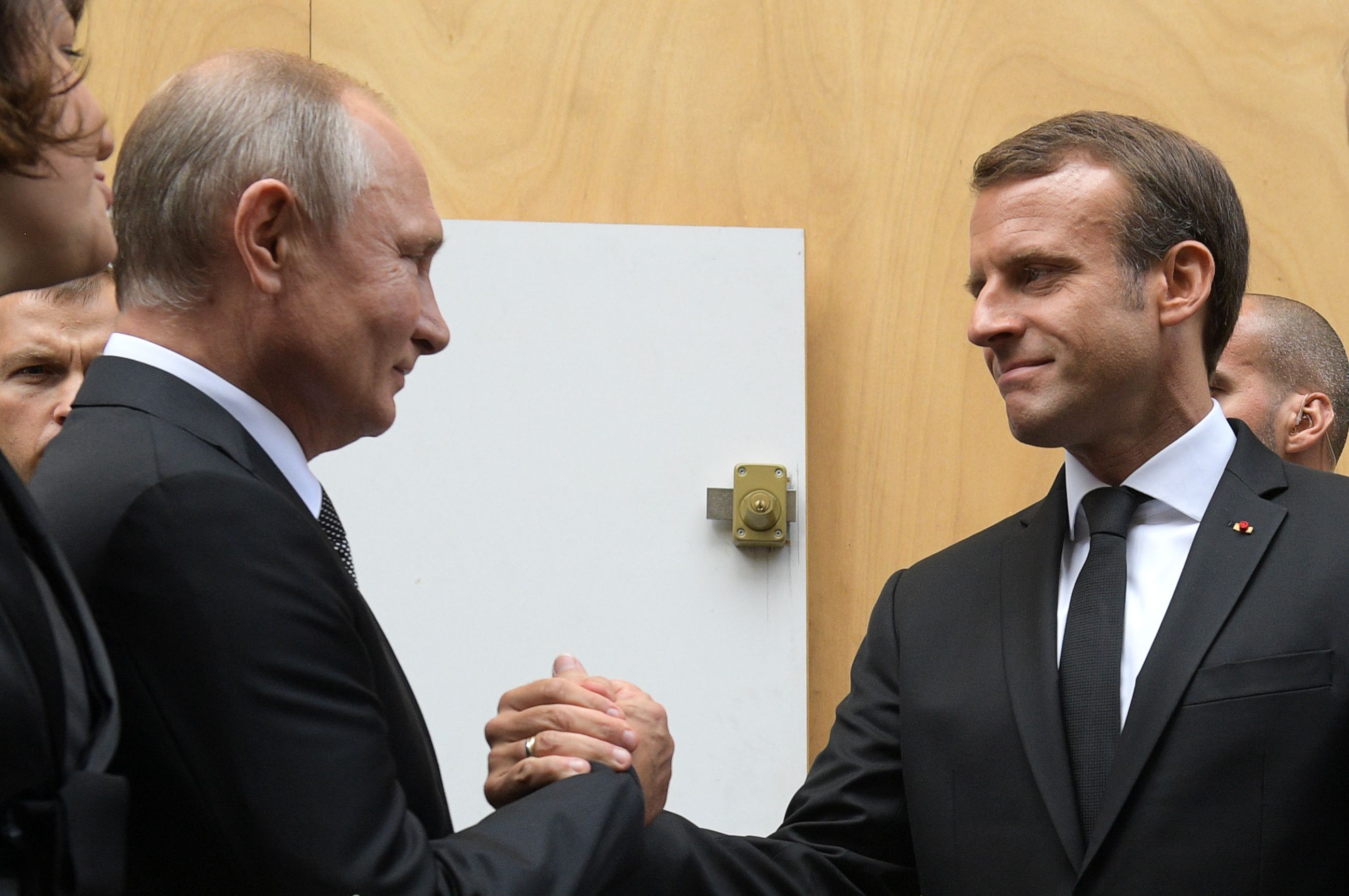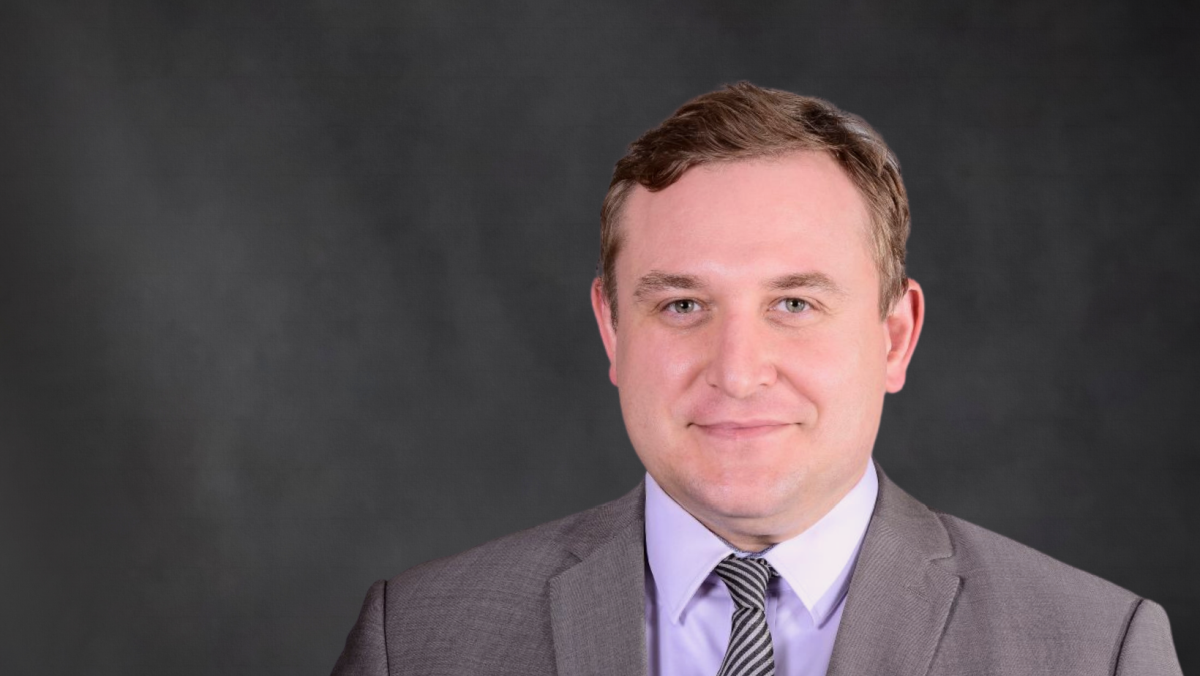Risky Strategy of Rapprochement: Russia in France's Foreign Policy

As a result of Russia’s annexation of Crimea in 2014 and the start of the war in the Donbas, Franco-Russian political relations were suspended. Despite supporting NATO’s policy of sanctions and unity in policy towards Russia, since the beginning of his presidency, Macron has tried to weaken the diplomatic isolation of the Russian leadership. His initial goal was to renew the Franco-Russian communication channel, demonstrated by President Vladimir Putin’s visit to Versailles on 29 May 2017, and Macron’s participation in the International Economic Forum in St. Petersburg on 24–25 May 2018.
However, in August this year, Macron announced the intention to build a “new architecture of trust and security in Europe” with Russia. According to his concept, Russia should become an EU strategic partner, an association which in the long run is to prevent the country from a closer alliance with China. France would act as a key intermediary between Europe and Russia, through which Macron sees greater French influence in the world.
Expected Benefits of Rapprochement with Russia
Macron’s main reason for formulating new cooperation initiatives with Russia is part of a strategy to counter China’s growing influence in Europe. It consists of preventing a closer Russia-China alliance through a policy of improving EU-Russia relations. Macron failed to build a coalition on this issue with other EU countries, so the French president came out first with the initiative. Contrary to Macron’s position, Germany has been reluctant towards rapprochement with Russia, as it has ceased playing the role of the EU’s main interlocutor with it.
France expects improving relations with Russia to have some benefits. First, Macron views closer cooperation with Russia as a way to end the conflict in Ukraine. A meeting of French and Russian defence ministers on 9 September in Moscow is thought to have had this goal. However, the sides did not propose any constructive solutions to solve the conflict. The French president also has called for the re-launch of the dialogue in the so-called Normandy format—the last summit in this format took place in 2016. Second, Macron intends to win over Russia as an ally in solving non-European crises important
Second, Macron intends to win over Russia as an ally in solving non-European crises important from the French perspective. Russia’s growing role in the Middle East and Africa has increased its importance for France. This mainly concerns Syria, which, given Turkey's intervention, has strengthened the French belief that cooperation with Russia is the only way to resolve the conflict. In addition, both countries have convergent positions regarding U.S.-Iran relations. Russia and France both opposed the U.S. withdrawal from the nuclear agreement with Iran (JCPOA). France received Russia’s support to maintain the agreement and restore talks with Iran. Arms control is another area. According to Macron’s statement from 19 August in a conference in Brégançon with Putin, France, a nuclear power, wants to play a mediating role between Russia and the U.S. to restore the nuclear weapons control system after the U.S. withdrew on 2 August from the INF Treaty, an agreement banning intermediate and medium-range missiles.
Third, French rapprochement with Russia would allow for economic benefits, in particular increased trade. Russia is now not a key exchange partner, with annual turnover of around €15 billion. But Russia holds great potential, as evidenced by the 26% increase in trade in 2018. France is the second-largest foreign investor in Russia and the first foreign employer. French businesses (especially energy giant Total) is putting pressure on Macron to lift sanctions and intensify cooperation. France is looking to acquire new investment contracts in Russia in such sectors as food, automotive, healthcare, large-area trade, and financial services.
Fourth, Macron’s domestic policy is an important context for improving relations with Russia. In order to rebuild its political base and voter confidence, currently at 34%, weakened in part by the yellow vest protests, the president of France needs success in international forums. The resolution of at least one of the larger armed conflicts at the moment (in Ukraine or Syria) with the support of Russia would improve his ratings. In addition, thanks to the new opening with Russia, he could count on acquiring part of the traditionally pro-Russian electorate, if not from Marine Le Pen or Jean-Luc Mélenchon, then at least from the Republicans.
Risk of Rapprochement
A strategy of closer cooperation with Russia is risky. First of all, Putin may be using Macron for his own purposes, for instance, the French president can be presented in Russian propaganda as a world leader who supports Russia’s aggressive policy. Macron could give the impression of legitimising Russia’s violations of international law, which would jeopardise France’s relations with Ukraine and NATO Eastern Flank countries such as Poland, Romania, and the Baltic States.
Second, Russia’s aggressive policy aimed at destabilising EU countries means that some Member States will not accept Macron’s concept of building a partnership with Russia if it is based on trust. Despite Germany’s cooperation with Russia on Nord Stream2, it opposes the French strategy. The Germans recognise that any improvement in political relations with Russia should be conditional on the full implementation of the Minsk Agreements, related to the war in Ukraine. In addition, given the political consensus towards maintaining the sanctions and Germany’s strong economic and political position in the EU, they are likely to be extended. The UK also does not favour the normalisation of relations with Russia, in part because of the latter’s support of pro-Brexit circles and because it was found to have carried out the chemical attack in Salisbury in March 2018. Another country that may oppose Macron’s policy towards Russia is the Netherlands, which suffered the shooting down of Malaysian Air 17 by Russian separatists in July 2014 in which 193 Dutch citizens were. Then, in April 2016, the country became the target of a Russian disinformation campaign in the context of the referendum on the EU’s Association Agreement with Ukraine.
Undoubtedly, Macron is aware of the threats posed by Russia, as evidenced by his administration’s preparation of an act on combating “fake news” in public space, which was backed by parliament in October 2018. This act was directed at the Russian French-language RT and Sputnik outlets.
Conclusions
If Macron continues his unilateral policy of normalising relations with Russia without consulting his EU partners, it may lead to the emergence of a new, sharper dividing line between the Member States regarding Russia policy. The effect may be an undermining of the unity of the EU regarding the existing sanctions.
Macron’s political camp sees resolving key conflicts with Russia’s cooperation as a way to strengthen France’s role as a creator of EU policy towards Russia. However, the failure of Macron’s policy of rapprochement with Russia, especially given the lack of German support, may damage both his credibility and his ambitions to play a leading role in the EU. In the absence of a Russian concession, for instance, in the Donbas, Macron’s vision of himself as an internationally influential statesman will not come true.
For Poland, rapprochement between France and Russia is unfavourable, in particular in connection with the French president’s idea that the latter will participate in creating a “new security architecture in Europe.” He may be thinking about an invitation to Russia to the European Intervention Initiative, which Macron launched in 2017. If the French pursue this policy line on Russia, it would add to the differences with Poland, which is not conducive to breaking the deadlock in relations between the two countries.


